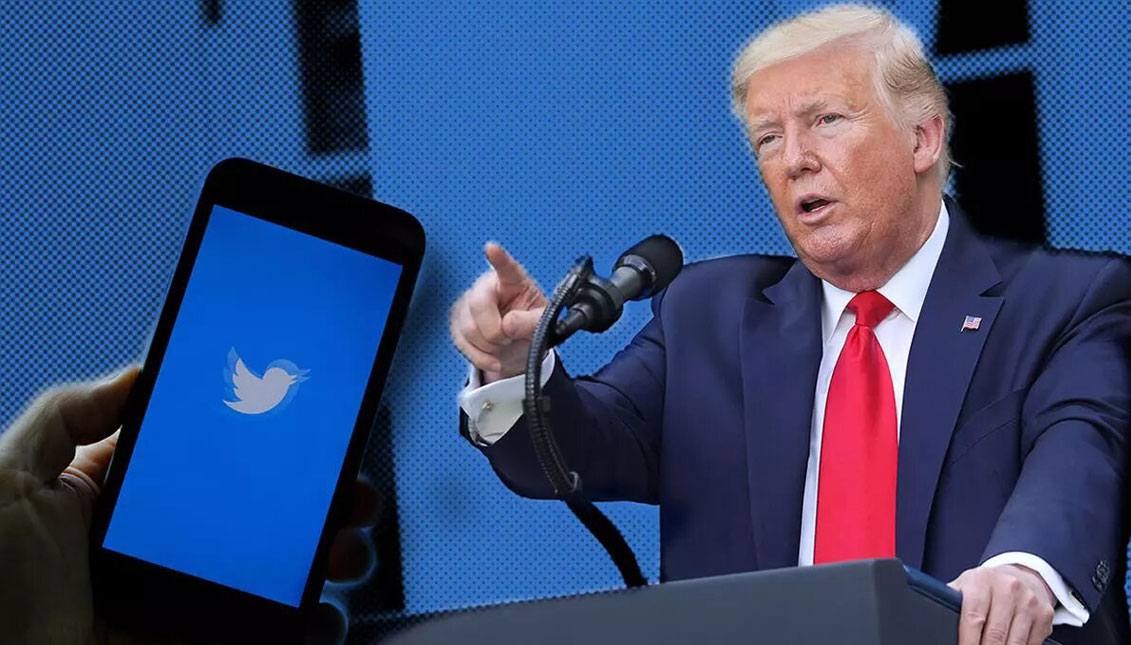
Between Fact-Checking and Censorship, Trump Flirts with Autocracy
Last Tuesday, Twitter began incorporating fact-checking announcements into the U.S. president's tweets, sparking a new debate about censorship and the reach of…
As Hitler began to make noise in Germany, President Herbert Hoover warned of the paradox of the dictatorial mechanism of coming to power "on the ladder of free speech" and then suppressing it at all costs.
It is very difficult to ignore history's warnings when today's U.S. president engages in a war of capital letters with social networks that choose to question the veracity of his comments.
Twitter has decided for the first time this week to mark Donald Trump's tweets on the platform with a "fact check" label, a mechanism that helps control the spread of fake news and speculation.

For a man accustomed to breaking through any social filter and figuring out reality as it suits him best, this is nothing short of a personal grievance.
“Republicans feel that Social Media Platforms totally silence conservatives voices,” Trump tweeted. “We will strongly regulate, or close them down before we can ever allow this to happen. We saw what they attempted to do, and failed, in 2016. We can’t let a more sophisticated version of that .... happen again.”
He threatened in a later tweet regarding Twitter that there was “Big action to follow!”
According to a Twitter spokesperson, the decision to tag the president's comments was made because they contained "potentially misleading" information about voting processes, more specifically around mail-in ballots.
The tags lead users to a page of additional information, adding: "These claims are unfounded, according to CNN, the Washington Post, and others.”
"Experts say that absentee voting is rarely linked to election fraud." The page also includes tweets from major media outlets and journalists giving the facts behind the vote by mail and Trump's claims.
The president's response has been to threaten the platform with "strong regulations" or even shut it down, accusing them of "stifling” free speech.
But this is not the first time the president or his team has accused the technology giants of censoring conservatives.
As NPR recalled, Brad Parscale, Trump's 2020 campaign manager, also suggested that Twitter was trying to undermine the president's rights to free speech, and even accused the company of being "anti-Trump.”
"We always knew that Silicon Valley would pull out all the stops to obstruct and interfere with President Trump getting his message through to voters," Parscale said. "Partnering with the biased fake news media 'fact-checkers' is only a smokescreen Twitter is using to try to lend their obvious political tactics some false credibility. There are many reasons the Trump campaign pulled all our advertising from Twitter months ago, and their clear political bias is one of them."
However, taking particular note of the Mueller research findings on Russian intelligence interference in the 2016 election through social networks, Twitter confirmed its commitment to fact-checking information on its platform.
RELATED CONTENT
During the Coronavirus pandemic, this was also key.
A Gallup poll in 2018 found that 79% of Americans believe that social networking companies should be regulated in one way or another, and Mark Zuckerberg's appearance before the Senate for Facebook's permeability to fake news gave some reason for this claim.
The algorithms of the new digital age allow the curatorship of social preferences that then give rise to niches of biased information.
However, according to Niam Yaraghi, a fellow at the Center of Technology Innovation, such regulations vary according to political ideology, with conservatives advocating greater freedom of expression and liberals favoring the right to transparent information.
It is simply a double-edged sword.
“The government intervention that they propose is potentially more damaging than the problem they want to solve,” Yaraghi explains. “If conservatives believe that certain businesses have enough power and influence to infringe on their freedom of speech, how can they propose government, a much more powerful and influential entity, to enter this space?”
This is a dystopian way of describing scenarios like the one that Chinese society has been experiencing for years, where the regime has built "the largest and most sophisticated system of Internet censorship in the world," according to a recent report compiled by PEN America.
According to the report, the Chinese regime has been remarkably successful in allowing its citizens to feel free to use social media to enrich their lives in a wide range of ways while creating a system that remains under the control of the regime.
President Trump's flirtation with autocratic government models is nothing new, and his threats to shut down Twitter are just one more example of it.
David Vladeck, a Georgetown University law professor and former FTC senior consumer protection official, told CNN that any pressure from the government to restrict the way private platforms moderate their websites could raise First Amendment questions.
"This is just another example of Trump thinking the Constitution makes him a king, but it doesn't," he said.










LEAVE A COMMENT: